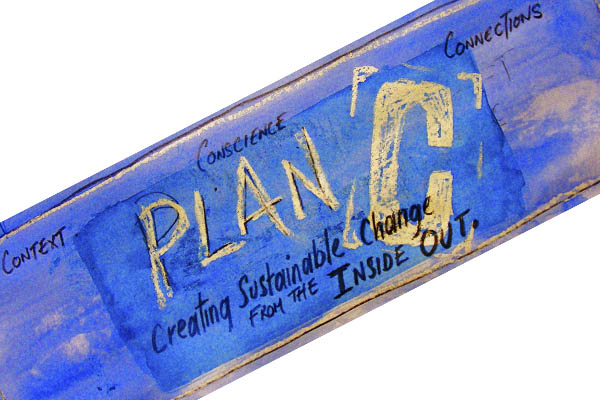Reflections on An Empty Sky

The planes returned to the London sky today. I admit to being a little resentful.
I’m a weird mixture. My early life was defined by airplanes. My late father was a weekend pilot. We had a little Cessna 150 which we flew everywhere. We called her Juliette after the last letter of her call sign.
I loved to fly; the sense of freedom was spectacular and daddy’s obvious happiness at being in the air was infectious. I got my first passport when I was 13 and graduating to international travel opened up the world to me. Ironically, it was a key factor in my choosing environmentalism as a profession. How can you see this world and not appreciate its uniqueness, its beauty, its depth and its complex web of connections? And how can you appreciate those things without wanting to ensure they remain intact?
When I was little we used to sit with our sandwiches and watch the planes at the local airport for fun. My dad taught me how to identify them on sight – a pastime my own son appreciated as a child. Daddy taught me how to drive propped up on phone books in the big expanse of the airport in California where we kept our plane. And we drove my mother crazy by talking to each other as if over the radio: “Six-One Juliette, over and out…”
Back in the here and now, and living in London, I’ve been luxuriating in five days of blissful peace, especially during my near daily jaunts to the local park. London’s parks can be wonderful refuges from city noise and stress. The only intrusion is often the booming, groaning and whining of the regular parade of planes overhead. It’s given me pause to think, to try and untangle the complicated emotional relationship I have to air travel (a relationship that also applies to cars, but we’ll leave that for another day).
As a child, and as a young woman whose work took me all over the world, I could look up into the sky and the jet trails, or contrails, held meaning for me. They were exciting reminders of a world waiting to be explored. Joni Mitchell once called them ‘the hexagram of the heavens’; maybe not geometrically correct but indicative of a way of writing our own messages across an empty sky. Today things couldn’t be more different, and as the planes returned to the sky this morning I felt discontented and sad. The jet trails looked like scars or wounds and I wondered how different our approach and enthusiasm for air travel might be if we reframed them as such. And how much more positive our approach to the environment would be if we could admit to and really feel the grief of the passing of lifestyles that no longer serve us or the planet, and then move on from them.
In the EU, aviation accounts for 3% of CO2 emissions. In the UK, the figure is higher at about 6%. But even these figures are misleading because every country has its own way of collecting data and often this doesn’t include emissions from charter flights or some international routes. The real figures are probably substantially higher.
While the fuel efficiency of planes has increased steadily, at around 1.2% a year, this needs to be viewed in the context of an industry that is growing at a rate of 8% every year, and which is predicted to quadruple in size between by 2050.
The growth of the aviation industry is in direct conflict with the need to reduce CO2 emissions by 80% by 2050 in order to avoid irreversible climate change.
The UK’s Tyndall Centre for Climate Change Research has said that if we accept this 80% reduction target, and if aviation continues to grow as predicted, it will require the whole of the rest of UK to be zero carbon, simply to allow us to continue flying. It can’t be done, which is one reason why I’ve thrown my support behind the Airplot, Greenpeace’s clever initiative to stop the third runway being built at London’s Heathrow.
Of course this narrow focus on carbon reduction (yet another story for another day) doesn’t even begin to take into the account of the damage caused by contrails which are made up of toxic emissions of soot and sulphur dioxide. In effect contrails are high, thin, man-made clouds that seed other types high, thin clouds known as cirrus clouds which in turn increase the temperature down here on earth.
According to the Intergovernmental Panel on Climate Change (IPCC) the climate changing potential of contrails is nearly three times that of CO2. These facts, as I have pointed out previously, are the trouble with travel. They equate to a wound that can only be healed by a reduction in air travel. And as the flight ban has shown, planes aren’t the only way to get around; trains, boats, ferries and coaches have all come into their own these last few days.
Then there is this issue of the ‘empty’ sky and the arrogance of those who would seek it fill it. Clearly the sky is not empty. Never has been. There is sun, moon, stars and clouds, showers and breezes. And birds. Maybe it’s my imagination but these last few days the birds seemed to be singing with greater gusto – probably it’s just the absence of plane noise, but maybe at some level they are aware of and appreciating the opportunity to call for a mate in daylight.
There was a heartbreaking story a couple of years ago about birds beginning to sing at night because during the day it was so noisy with planes and cars and the general noisy mishegas of city life, that their potential mates couldn’t hear them. For days my street has been positively bursting with a sexy springtime symphony of birdsong. Better than anything currently on stage in the West End.
This notion of an empty sky is intriguing to me. It is a peculiarity of humans that when we see an empty space – that is, one devoid of human input – we feel the need to fill it up. In this case to make clouds, to make an even louder ‘bird’ song, to paint our human designs on any and every ‘blank’ canvas we come across. What are contrails but aviation graffiti? A displaced act of creation that becomes an act of destruction.
Disruption aside, with a volcanic eruption there is the sheer excitement of the Earth giving birth to itself. At the most basic level that’s what volcanoes do. I can recall many years ago, visiting beautiful Hawaii with my 10 year old son, and being moved by the realisation that he was standing on ground that was younger than he was. For me this genuine act of creation, and the pause for thought that it provided, was much more important than any perceived ‘lack’ of pineapple chunks from Ghana or baby sweetcorn from Thailand or cut flowers from Africa – none of which I would buy anyway. The disruption of this particular economy has shown just how brittle and vulnerable the international food system really is. Perhaps some good will come of that.
Then there is the fact that without the planes the air felt cleaner. The air was cleaner. Even though Eyjafjallajökull has spewed plenty of ash, it was emitting far less greenhouse gas than the grounded planes would have generated.
Researchers at Durham University calculated that carbon dioxide emissions from the Icelandic volcano totalled 150,000 tonnes a day in the early days of the eruption, compared to 510,000 tonnes per day emitted when planes are flying as normal over the continent. That means a cut of 340,000 tonnes a day in Europe. There was even some hint that the ash, should it settle, could give our gardens a boost because it contains a variety of elements and nutrients that can help regenerate the soil.
But all that is over now. From today, friends stranded in New York will return. Friends who might have been at the Bolivian People’s World Conference on Climate Change have by now made their peace with the fact that no matter how fantastic and useful the conference might be, it was probably a happy accident of nature that they didn’t fly there and that video conferencing is both appropriate and effective.
For me, I’ve been grateful for the peace of the last few days. I admit to secretly loving the way nature throws us these curveballs from time to time. Whether they are random or part of some higher ‘plan’, they are a welcome opportunity to reassess so much of what we take for granted. It has been a chance to ‘talk’ to my dad and explain to him why the sound of jet engines isn’t really music to me anymore, why I haven’t flown anywhere in 4 years, why I believe there is work for all of us to do on the homefront before we jet off somewhere exotic, and to remember that the earth is talking to us all the time.
We just need to tune in, in order to hear what she is saying.
© Pat Thomas 2010. No reproduction without author’s permission.












